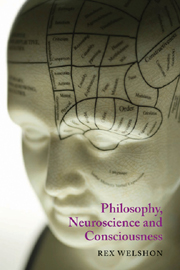Introduction
Summary
Every generation of scholars is prone to believing that it is the first to finally see things clearly. This is true also for the study of consciousness. However, Sigmund Freud and Gottfried Leibniz identified two of the fundamental problems posed by attempts to reduce consciousness to the goings-on inside the cranium, the first a hundred years ago, the second three hundred years ago. Freud states the first problem in his Outline to Psychoanalysis:
We know two kinds of things about what we call our psyche (or mental life): firstly, its bodily organ and scene of action, the brain (or nervous system) and, on the other hand, our acts of consciousness, which are immediate data and cannot be further explained by any sort of description. Everything that lies in between is unknown to us, and the data do not include any direct relation between these two terminal points of our knowledge. If it existed, it would at the most afford an exact localization of the processes of consciousness and would give us no help towards understanding it.
(Freud 1938: Preface)This puts the explanatory gap problem of consciousness succinctly: we know we are conscious, but even if we were to know that conscious events occur in the brain, indeed in particular processes precisely localized within a region of the brain, we still would not understand how those processes generate those conscious features (Levine 1983). After all, what happens in cortical neural assemblies is electrochemical, but the qualitative richness, subjective perspectivity, and unified nature of conscious events appear on all counts not to be electrical or chemical but something else altogether.
- Type
- Chapter
- Information
- Philosophy, Neuroscience and Consciousness , pp. 1 - 5Publisher: Acumen PublishingPrint publication year: 2010



